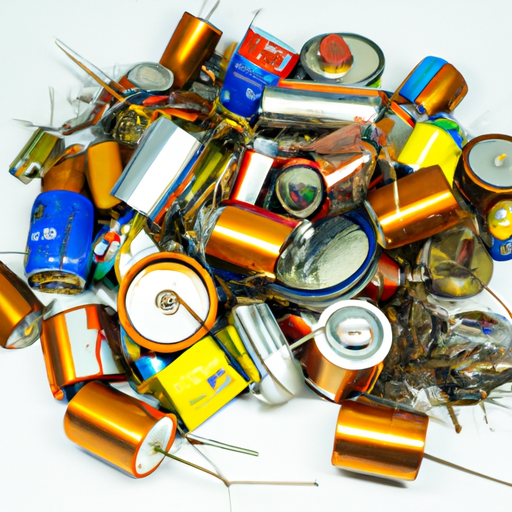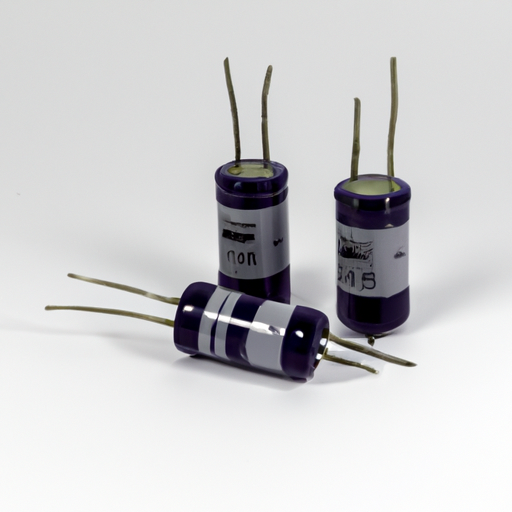What industries are the application scenarios for capacitor recycling included?
What Industries Are the Application Scenarios for Capacitor Recycling Included?
I. Introduction
In an era where sustainability is paramount, capacitor recycling has emerged as a critical practice across various industries. Capacitors, essential components in electronic devices, play a significant role in energy storage and management. As technology advances and the demand for electronic devices increases, the need for effective recycling methods becomes more pressing. This blog post explores the importance of capacitor recycling, the industries that benefit from it, and the broader implications for sustainability.
II. Understanding Capacitors
Capacitors are electrical components that store and release energy. They are used in a wide range of applications, from smoothing out electrical signals in circuits to providing power during brief interruptions. Common types of capacitors include ceramic, electrolytic, and tantalum capacitors, each serving specific functions in various devices.
The lifecycle of capacitors typically involves manufacturing, usage, and eventual disposal. As electronic devices reach the end of their life cycle, the need for recycling becomes evident. Recycling capacitors not only recovers valuable materials but also reduces the environmental impact associated with electronic waste (e-waste).
III. Key Industries Involved in Capacitor Recycling
A. Electronics Industry
The electronics industry is perhaps the most significant player in capacitor recycling. Capacitors are integral to nearly all electronic devices, from smartphones to computers. As e-waste continues to grow, effective recycling practices are essential to manage this waste stream.
Recycling capacitors in the electronics sector offers numerous benefits, including the recovery of precious metals like tantalum and aluminum, which can be reused in new products. Additionally, recycling helps mitigate the environmental impact of e-waste, reducing landfill contributions and pollution.
B. Renewable Energy Sector
The renewable energy sector relies heavily on capacitors for energy storage and management in systems like solar panels and wind turbines. As the world shifts towards sustainable energy solutions, the importance of recycling capacitors in this sector cannot be overstated.
Recycling capacitors contributes to sustainability by ensuring that valuable materials are reused, thus reducing the need for new raw materials. Successful case studies in this sector demonstrate how effective recycling practices can enhance the overall sustainability of renewable energy systems.
C. Automotive Industry
With the rise of electric vehicles (EVs) and hybrid vehicles, the automotive industry has become increasingly reliant on capacitors. These components are crucial for energy management and performance in modern vehicles. As the industry evolves, the recycling of capacitors has become a focal point for manufacturers.
The impact of capacitor recycling on automotive manufacturing is significant. It not only reduces waste but also aligns with regulatory frameworks promoting sustainability. Many automotive companies are now implementing recycling programs to recover materials from end-of-life vehicles, contributing to a more circular economy.
D. Telecommunications
Capacitors are vital in telecommunications infrastructure, including communication devices and network equipment. As the demand for faster and more reliable communication grows, so does the need for effective recycling practices in this sector.
Recycling capacitors in telecommunications helps reduce the environmental impact of discarded devices. Innovations in recycling technologies are emerging, allowing for more efficient recovery of materials and minimizing waste. This sector's commitment to sustainability is crucial for reducing its carbon footprint.
E. Industrial Manufacturing
In industrial manufacturing, capacitors are used in various machinery and equipment. The economic benefits of recycling capacitors in this sector are substantial, as manufacturers can recover valuable materials and reduce disposal costs.
Examples of industrial recycling programs highlight the potential for significant resource recovery. By implementing effective recycling practices, manufacturers can not only save money but also contribute to a more sustainable manufacturing process.
F. Consumer Goods
Capacitors are also found in household appliances and consumer gadgets. As consumers become more aware of the environmental impact of e-waste, participation in recycling programs is increasing.
Manufacturers play a crucial role in promoting recycling by designing products for easier disassembly and recycling. Consumer awareness campaigns can further enhance participation, leading to a more sustainable approach to managing electronic waste.
IV. Environmental and Economic Benefits of Capacitor Recycling
The benefits of capacitor recycling extend beyond individual industries. One of the most significant advantages is the reduction of electronic waste. By recycling capacitors, we can divert a substantial amount of e-waste from landfills, where it can leach harmful substances into the environment.
Additionally, recycling conserves natural resources by recovering valuable materials that can be reused in new products. This not only reduces the demand for raw materials but also minimizes the environmental impact associated with extraction and processing.
From an economic perspective, capacitor recycling offers advantages for industries and communities alike. It creates jobs in recycling facilities and promotes a circular economy, where materials are continuously reused rather than discarded. This shift can lead to long-term economic benefits and a more sustainable future.
V. Challenges in Capacitor Recycling
Despite the numerous benefits, capacitor recycling faces several challenges. Technical challenges in the recycling process can hinder efficiency and recovery rates. Developing advanced recycling technologies is essential to overcome these obstacles.
Regulatory and compliance issues also pose challenges for the recycling industry. Navigating complex regulations can be daunting for companies looking to implement recycling programs. Additionally, market demand for recycled materials can fluctuate, impacting the viability of recycling initiatives.
Public awareness and participation in recycling initiatives are crucial for success. Educating consumers about the importance of recycling capacitors and how to participate in programs can significantly enhance recycling rates.
VI. Future Trends in Capacitor Recycling
The future of capacitor recycling looks promising, with several trends emerging. Innovations in recycling technologies are on the rise, enabling more efficient recovery of materials and reducing environmental impact. Research and development efforts are focused on improving recycling processes, making them more effective and economically viable.
Increasing regulatory pressures and incentives are also shaping the landscape of capacitor recycling. Governments worldwide are implementing stricter regulations to promote recycling and reduce e-waste, encouraging industries to adopt sustainable practices.
As awareness of sustainability grows, the demand for recycled materials is expected to increase. This trend will likely drive the growth of capacitor recycling across various industries, contributing to a more sustainable future.
VII. Conclusion
In conclusion, capacitor recycling is a vital practice that spans multiple industries, from electronics to renewable energy and automotive manufacturing. The importance of recycling capacitors cannot be overstated, as it contributes to sustainability, reduces e-waste, and conserves natural resources.
As stakeholders across industries work to enhance recycling efforts, the vision for a sustainable future becomes more attainable. By embracing effective recycling practices, we can create a circular economy that benefits both the environment and the economy. It is imperative for industries, consumers, and policymakers to collaborate and promote capacitor recycling, ensuring a greener and more sustainable world for generations to come.






